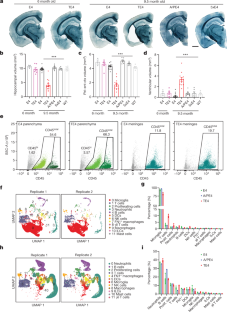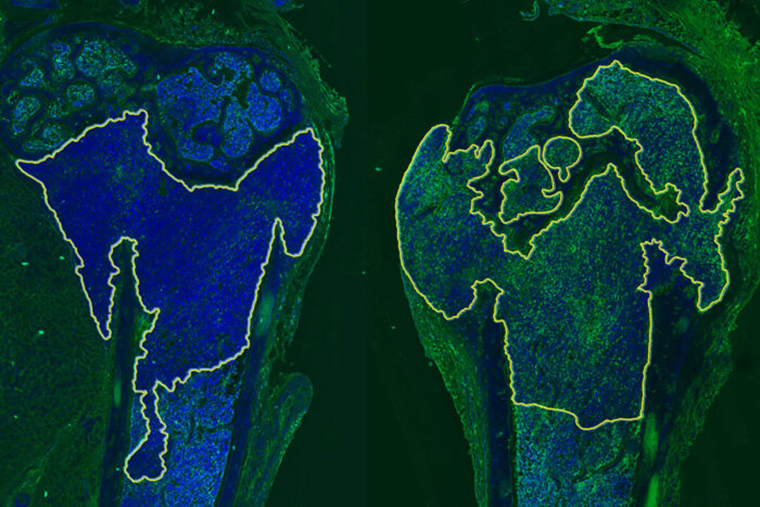タウタンパク質が関与する脳疾患に対する創薬の可能性を広げるマウスでの発見 Findings, in mice, open up drug development possibilities for brain diseases linked to tau protein
2023-03-08 ワシントン大学セントルイス校
最新の研究では、ミクログリアとT細胞が相互作用し、脳の神経変性を引き起こすことが明らかになった。このことから、T細胞をターゲットにすることで、アルツハイマー病の予防や治療を行うことが可能になる可能性がある。
<関連情報>
- https://source.wustl.edu/2023/03/discovery-of-t-cells-role-in-alzheimers-related-diseases-suggests-new-treatment-strategy/
- https://medicine.wustl.edu/news/discovery-of-t-cells-role-in-alzheimers-and-related-diseases-suggests-new-treatment-strategy/
- https://www.nature.com/articles/s41586-023-05788-0
ミクログリアを介したT細胞浸潤がタウパチーにおける神経変性を促進する Microglia-mediated T cell infiltration drives neurodegeneration in tauopathy
Xiaoying Chen,Maria Firulyova,Melissa Manis,Jasmin Herz,Igor Smirnov,Ekaterina Aladyeva,Chanung Wang,Xin Bao,Mary Beth Finn,Hao Hu,Irina Shchukina,Min Woo Kim,Carla M. Yuede,Jonathan Kipnis,Maxim N. Artyomov,Jason D. Ulrich & David M. Holtzman
Nature Published:08 March 2023
DOI:https://doi.org/10.1038/s41586-023-05788-0

Abstract
Extracellular deposition of amyloid-β as neuritic plaques and intracellular accumulation of hyperphosphorylated, aggregated tau as neurofibrillary tangles are two of the characteristic hallmarks of Alzheimer’s disease1,2. The regional progression of brain atrophy in Alzheimer’s disease highly correlates with tau accumulation but not amyloid deposition3,4,5, and the mechanisms of tau-mediated neurodegeneration remain elusive. Innate immune responses represent a common pathway for the initiation and progression of some neurodegenerative diseases. So far, little is known about the extent or role of the adaptive immune response and its interaction with the innate immune response in the presence of amyloid-β or tau pathology6. Here we systematically compared the immunological milieux in the brain of mice with amyloid deposition or tau aggregation and neurodegeneration. We found that mice with tauopathy but not those with amyloid deposition developed a unique innate and adaptive immune response and that depletion of microglia or T cells blocked tau-mediated neurodegeneration. Numbers of T cells, especially those of cytotoxic T cells, were markedly increased in areas with tau pathology in mice with tauopathy and in the Alzheimer’s disease brain. T cell numbers correlated with the extent of neuronal loss, and the cells dynamically transformed their cellular characteristics from activated to exhausted states along with unique TCR clonal expansion. Inhibition of interferon-γ and PDCD1 signalling both significantly ameliorated brain atrophy. Our results thus reveal a tauopathy- and neurodegeneration-related immune hub involving activated microglia and T cell responses, which could serve as therapeutic targets for preventing neurodegeneration in Alzheimer’s disease and primary tauopathies.


